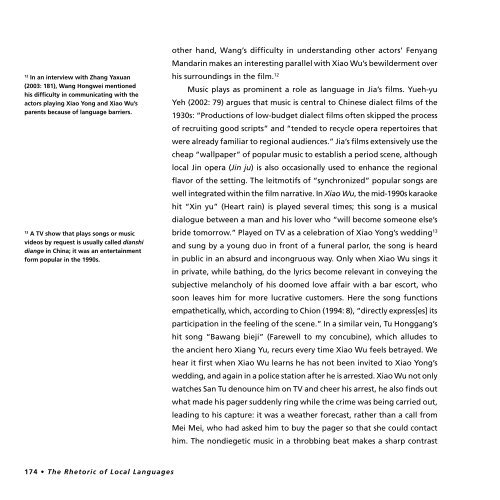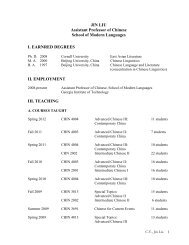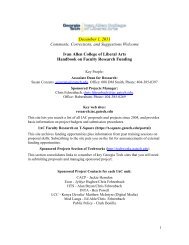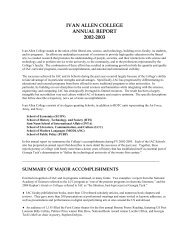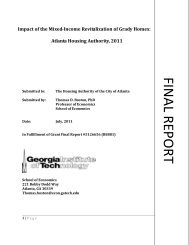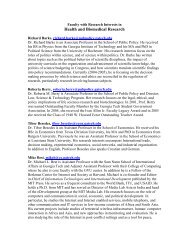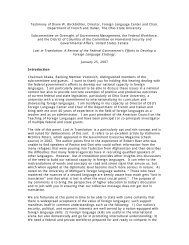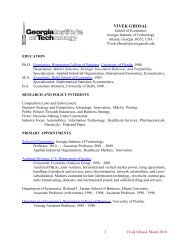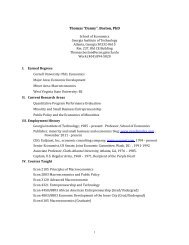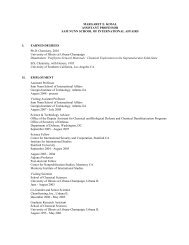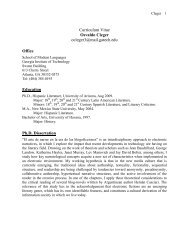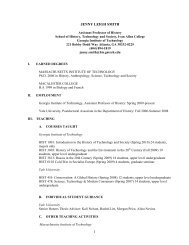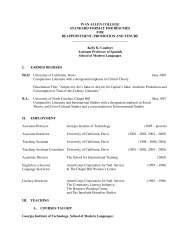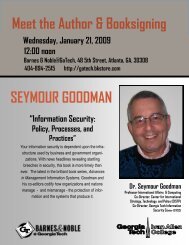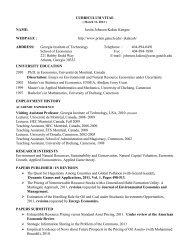Read this paper
Read this paper
Read this paper
Create successful ePaper yourself
Turn your PDF publications into a flip-book with our unique Google optimized e-Paper software.
12<br />
In an interview with Zhang Yaxuan<br />
(2003: 181), Wang Hongwei mentioned<br />
his difficulty in communicating with the<br />
actors playing Xiao Yong and Xiao Wu’s<br />
parents because of language barriers.<br />
13<br />
A TV show that plays songs or music<br />
videos by request is usually called dianshi<br />
diange in China; it was an entertainment<br />
form popular in the 1990s.<br />
other hand, Wang’s difficulty in understanding other actors’ Fenyang<br />
Mandarin makes an interesting parallel with Xiao Wu’s bewilderment over<br />
his surroundings in the film. 12<br />
Music plays as prominent a role as language in Jia’s films. Yueh-yu<br />
Yeh (2002: 79) argues that music is central to Chinese dialect films of the<br />
1930s: “Productions of low-budget dialect films often skipped the process<br />
of recruiting good scripts” and “tended to recycle opera repertoires that<br />
were already familiar to regional audiences.” Jia’s films extensively use the<br />
cheap “wall<strong>paper</strong>” of popular music to establish a period scene, although<br />
local Jin opera (Jin ju) is also occasionally used to enhance the regional<br />
flavor of the setting. The leitmotifs of “synchronized” popular songs are<br />
well integrated within the film narrative. In Xiao Wu, the mid-1990s karaoke<br />
hit “Xin yu” (Heart rain) is played several times; <strong>this</strong> song is a musical<br />
dialogue between a man and his lover who “will become someone else’s<br />
bride tomorrow.” Played on TV as a celebration of Xiao Yong’s wedding 13<br />
and sung by a young duo in front of a funeral parlor, the song is heard<br />
in public in an absurd and incongruous way. Only when Xiao Wu sings it<br />
in private, while bathing, do the lyrics become relevant in conveying the<br />
subjective melancholy of his doomed love affair with a bar escort, who<br />
soon leaves him for more lucrative customers. Here the song functions<br />
empathetically, which, according to Chion (1994: 8), “directly express[es] its<br />
participation in the feeling of the scene.” In a similar vein, Tu Honggang’s<br />
hit song “Bawang bieji” (Farewell to my concubine), which alludes to<br />
the ancient hero Xiang Yu, recurs every time Xiao Wu feels betrayed. We<br />
hear it first when Xiao Wu learns he has not been invited to Xiao Yong’s<br />
wedding, and again in a police station after he is arrested. Xiao Wu not only<br />
watches San Tu denounce him on TV and cheer his arrest, he also finds out<br />
what made his pager suddenly ring while the crime was being carried out,<br />
leading to his capture: it was a weather forecast, rather than a call from<br />
Mei Mei, who had asked him to buy the pager so that she could contact<br />
him. The nondiegetic music in a throbbing beat makes a sharp contrast<br />
174 • The Rhetoric of Local Languages<br />
MCLC 18.2.indd 174<br />
12/20/06 2:01:36 PM


